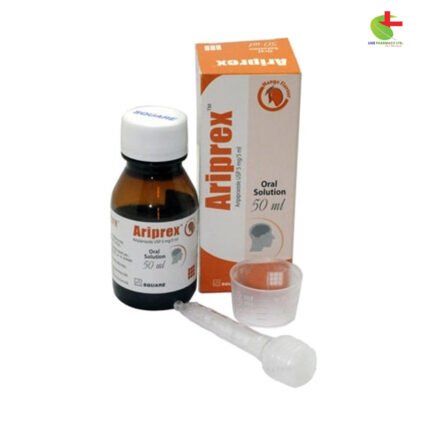Methomol 500
100.00৳ Strip
- Discover Methomol, an adjunct treatment for acute musculoskeletal discomfort.
- Helps alleviate pain when used alongside rest and physical therapy.
- Potential sedative properties for enhanced relief.
- Available in oral formulations for convenient administration.
- Tailored support for managing musculoskeletal health effectively.
 Brand
Brand
|
Square Pharmaceuticals PLC |
|---|---|
 Generics
Generics
|
Methocarbamol |
 Type
Type
|
Tablet |
Indications
Methomol is prescribed alongside rest, physical therapy, and other methods to alleviate discomfort from acute, painful musculoskeletal conditions. While its exact mechanism isn’t fully understood, Methomol’s potential sedative properties may contribute to its therapeutic effects. However, it does not directly relax tense skeletal muscles in humans.
Pharmacology
The specific mode of action of Methocarbamol in humans remains undetermined but may involve general depression of the Central Nervous System (CNS). Importantly, it does not act directly on the contractile mechanism of skeletal muscle, motor end plates, or nerve fibers.
Dosage & Administration
Route of Administration: Oral
- Methocarbamol 500 mg – Adults:
- Initial dosage: 3 tablets four times daily (q.i.d.)
- Maintenance dosage: 2 tablets four times daily (q.i.d.)
- Methocarbamol 750 mg – Adults:
- Initial dosage: 2 tablets four times daily (q.i.d.)
- Maintenance dosage: 1 tablet every 4 hours or 2 tablets three times daily (t.i.d.)
A daily dosage of six grams is recommended for the first 48 to 72 hours (up to eight grams for severe conditions), with subsequent reduction to approximately four grams daily.
Pediatric Use: The safety and effectiveness of Methocarbamol in patients under 16 years old have not been established.
Interactions
Methomol may diminish the effectiveness of Pyridostigmine Bromide, caution is advised when used concurrently with anticholinesterase agents in patients with myasthenia gravis.
Contraindications
Methocarbamol should not be used in patients with known hypersensitivity to Methocarbamol or any components of the tablets.
Side Effects
Possible adverse reactions associated with Methomol include various systemic symptoms such as allergic reactions, cardiovascular effects like bradycardia and hypotension, gastrointestinal issues, hematologic changes, and neurological effects ranging from dizziness to seizures.
Pregnancy & Lactation
Methocarbamol is classified as Pregnancy Category C. Animal studies have not been conducted, and its effects on fetal development are unknown. Use during pregnancy should be considered only if clearly needed, and caution is advised during lactation due to potential excretion of Methocarbamol or its metabolites in human milk.
Precautions & Warnings
Patients should be aware that Methomol may cause drowsiness or dizziness, affecting their ability to operate vehicles or machinery. Combining Methomol with alcohol or other CNS depressants should be avoided. Caution is advised regarding potential adverse effects on fetal development.
Overdose Effects
Overdose of Methomol, often in combination with alcohol or other CNS depressants, may result in symptoms such as nausea, drowsiness, and, in severe cases, seizures or coma. Management involves supportive care, including airway maintenance and monitoring vital signs.
Therapeutic Class
Centrally acting Skeletal Muscle Relaxants
Storage Conditions
Store Methomol below 30°C, protected from light, and out of children’s reach.













Reviews
There are no reviews yet.